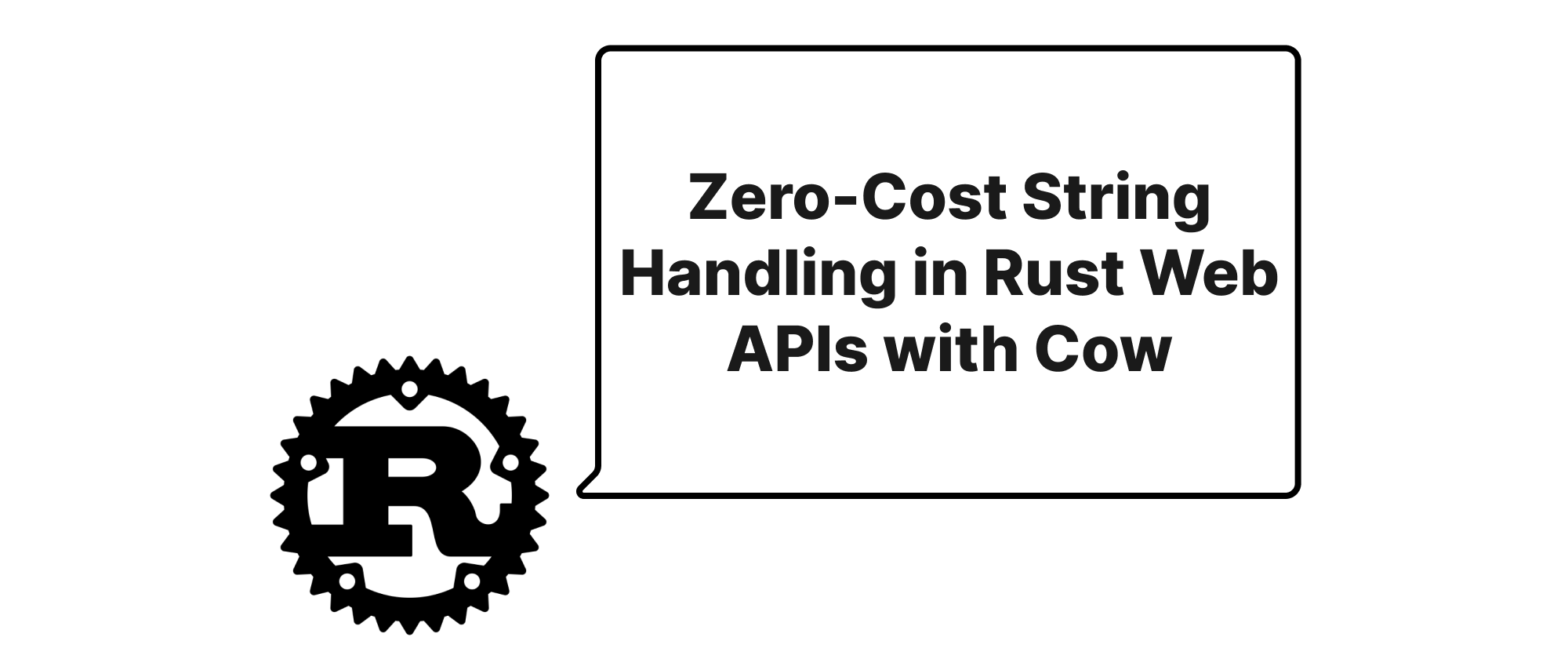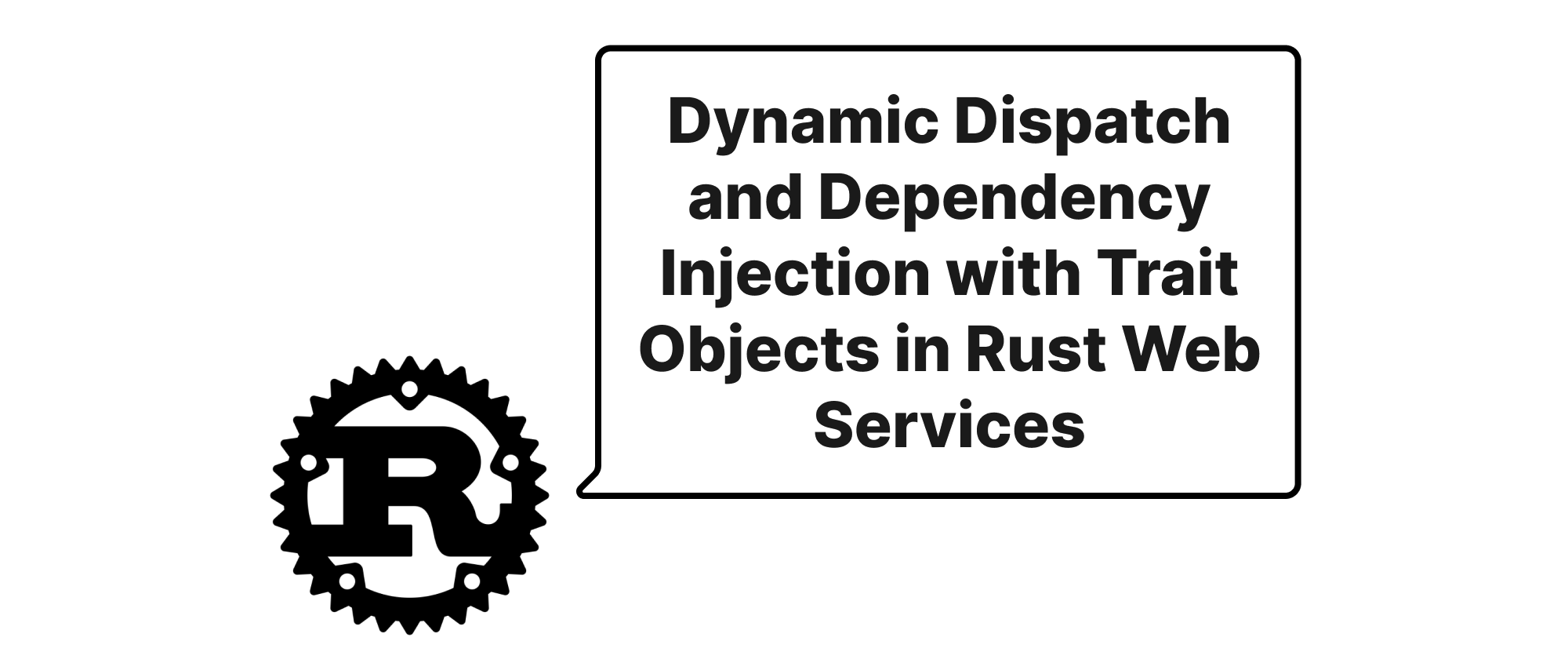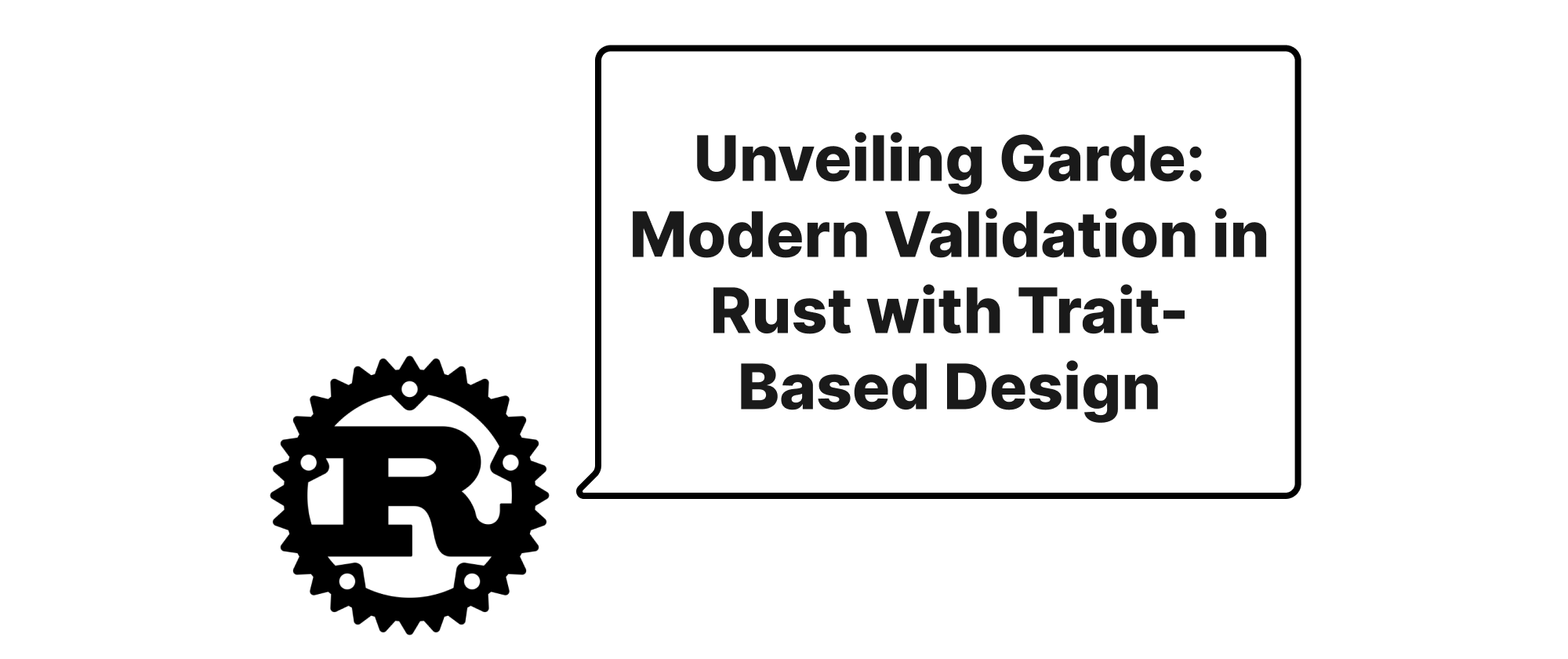Zero-Cost String Handling in Rust Web APIs with Cow
Olivia Novak
Dev Intern · Leapcell

Introduction
In the world of web API development, performance is paramount. Every byte allocated, every string copied, contributes to a cumulative overhead that can impact the responsiveness and scalability of your service. Rust, with its strong emphasis on performance and memory safety, offers powerful tools to tackle these challenges. One such tool, often overlooked but incredibly effective for string handling, is Cow<'static, str>.
When building web APIs, we frequently encounter scenarios where strings originate from various sources: compile-time literals, configuration files, database queries, or user input. Some of these strings are static and known at compile time, while others are dynamically generated. Unconditionally allocating new strings (String) for every piece of text, even static ones, introduces unnecessary overhead. This is where Cow (Clone-on-Write) shines, enabling us to achieve zero-cost string handling by avoiding allocations when possible and only paying the price when a modification or owned copy is genuinely required.
This article will delve into the practical application of Cow<'static, str> in Rust web APIs. We'll explore its underlying principles, demonstrate its usage with concrete examples, and highlight the benefits it brings to performance-critical applications, ultimately leading to more efficient and memory-friendly APIs.
Understanding the Tools
Before we dive into the implementation, let's clarify some core concepts that are central to understanding Cow<'static, str>:
-
strvs.String: In Rust,&stris a string slice, a reference to a sequence of UTF-8 encoded bytes. It's immutable and doesn't own its data.Stringis a growable, owned, UTF-8 encoded string buffer. It owns its data, meaning it manages its memory on the heap. You can always get an&strfrom aString(using&my_string), but converting&strtoStringtypically involves an allocation (e.g.,my_str.to_string()). -
'staticLifetime: The'staticlifetime in Rust means that a reference lives for the entire duration of the program. This is typically used for string literals (e.g.,"hello") which are embedded directly into the binary's data segment and are available throughout the program's lifecycle. -
Cow(Clone-on-Write):Cowis an enum with two variants:BorrowedandOwned. It's a smart pointer that allows you to borrow data when possible and own it only when necessary. The "Clone-on-Write" part means that if you need to modify the data or get an owned version for aCow::Borrowedvariant, it will perform a clone operation, creating an owned copy. If it's alreadyCow::Owned, it will just return the owned data.
When we combine these, Cow<'static, str> means "either a borrowed string slice with a static lifetime, or an owned String". This specific type is incredibly powerful because it allows a single data structure to seamlessly represent both compile-time string literals and dynamically allocated strings.
The Principle of Zero-Cost String Handling
The core principle behind using Cow<'static, str> for zero-cost string handling is minimizing unnecessary allocations.
Consider a scenario where your web API returns a JSON response:
{ "status": "success", "message": "Operation completed successfully" }
Here, "status" and "message" keys, as well as the "success" and "Operation completed successfully" values, might often be static strings known at compile time. If your serialization library (like serde_json) or your data structures always force an allocation into String, you're needlessly allocating memory and performing heap operations for data that could simply be referenced directly from your binary.
Cow<'static, str> allows you to define your data structures such that they can hold a &'static str for static content and automatically fall back to an owned String only when the content is dynamic. This approach avoids allocations for static strings entirely.
Implementation Details and Examples
Let's illustrate this with a practical example in a Rust web API context using Axum and serde.
First, add these dependencies to your Cargo.toml:
[dependencies] axum = "0.7" tokio = { version = "1", features = ["full"] } serde = { version = "1", features = ["derive"] } serde_json = "1" # Required for Cow's Deserialize impl serde_json_borrow = "0.7"
Now, let's define a response structure that leverages Cow<'static, str>:
use axum::{routing::get, Json, Router}; use serde::{Deserialize, Serialize}; use std::borrow::Cow; use std::collections::HashMap; // A type alias for convenience type StaticCowStr = Cow<'static, str>; #[derive(Debug, Serialize, Deserialize)] pub struct ApiResponse { status: StaticCowStr, message: StaticCowStr, data: Option<HashMap<StaticCowStr, StaticCowStr>>, // Can also be used for map keys/values } impl ApiResponse { pub fn new_static_success(message: &'static str) -> Self { ApiResponse { status: Cow::Borrowed("success"), message: Cow::Borrowed(message), data: None, } } pub fn new_dynamic_error(error_msg: String) -> Self { ApiResponse { status: Cow::Borrowed("error"), message: Cow::Owned(error_msg), // Message is dynamic, so it's owned data: None, } } pub fn with_data( status: StaticCowStr, message: StaticCowStr, data: HashMap<StaticCowStr, StaticCowStr>, ) -> Self { ApiResponse { status, message, data: Some(data), } } } async fn get_static_data() -> Json<ApiResponse> { // This response will incur zero string allocations for status and message Json(ApiResponse::new_static_success("Data fetched successfully")) } async fn get_dynamic_data() -> Json<ApiResponse> { let some_user_input = "User provided an invalid ID".to_string(); // Imagine this comes from runtime input // This response will allocate for the error message, but not for status Json(ApiResponse::new_dynamic_error(some_user_input)) } async fn get_data_with_additional_info() -> Json<ApiResponse> { let mut data = HashMap::new(); data.insert(Cow::Borrowed("item_id"), Cow::Borrowed("XYZ-123")); data.insert(Cow::Borrowed("timestamp"), Cow::Owned(chrono::Utc::now().to_string())); // Dynamic time Json(ApiResponse::with_data( Cow::Borrowed("info"), Cow::Borrowed("Detailed information"), data )) } // ... more handlers #[tokio::main] async fn main() { let app = Router::new() .route("/static", get(get_static_data)) .route("/dynamic", get(get_dynamic_data)) .route("/info", get(get_data_with_additional_info)); let listener = tokio::net::TcpListener::bind("127.0.0.1:3000") .await .unwrap(); println!("Listening on http://127.0.0.1:3000"); axum::serve(listener, app).await.unwrap(); }
Explanation of the Example:
ApiResponseStructure: Notice howstatusandmessagefields are of typeStaticCowStr(which isCow<'static, str>). This allows them to hold either a borrowed static string literal or an ownedString.new_static_success: When you callApiResponse::new_static_success("Data fetched successfully"), both "success" and "Data fetched successfully" are string literals (&'static str). They are wrapped inCow::Borrowed, meaning no heap allocations occur for these strings. They are simply references to data already existing in the program's binary.new_dynamic_error: If an error message comes from a dynamic source (e.g., user input, database error string), it's likely aString. In this case,Cow::Owned(error_msg)is used. An allocation does occur forerror_msgitself, but theCowwrapper still allows it to coexist seamlessly with borrowed strings in the sameApiResponsetype. The key is that we're only paying for the allocation when it's genuinely needed.HashMapKeys/Values: We can even useStaticCowStrfor keys and values within aHashMapinside our response. This extends the zero-allocation benefit to nested data. For instance,HashMap::insertcan acceptCow::Borrowedfor static keys and values, andCow::Ownedfor dynamic ones. Thetimestampfield inget_data_with_additional_infodemonstrates this, where the dynamic timestamp string is created as anOwnedvariant.- Serialization/Deserialization:
serdehas excellent support forCow. When serializingApiResponseto JSON,Cow::Borrowedvariants are serialized directly as string literals, andCow::Ownedvariants are serialized as their ownedStringvalues. On deserialization, if the JSON value is directly consumed (e.g., intoJson<ApiResponse>in anaxumhandler),Cowcan smartly borrow string slices from the underlying JSON buffer (if supported by the JSON parser, e.g.,serde_jsonwith features likearbitrary_precision). If the lifetime isn't'static,Cowwill copy the string, effectively becomingCow::Owned. Theserde_json_borrowcrate helps ensureCow<'static, str>correctly handles deserialization by either borrowing or owning.
Application Scenarios
- API Response Payloads: As demonstrated, this is a prime use case for crafting responses that contain a mix of static status messages, error codes, and dynamic data.
- Configuration Handling: Loading configuration values that might be literals (e.g., default paths) or dynamic (e.g., from environment variables).
- Error Messages: Centralized error handling where generic errors are static
&'static strbut specific error details are dynamically generatedString. - Middleware Context: Passing common, static strings (like service names or environment identifiers) through middleware without repeated allocations.
Conclusion
Cow<'static, str> is a powerful and idiomatic Rust construct for achieving zero-cost string handling in your web APIs. By judiciously selecting between Cow::Borrowed for static string literals and Cow::Owned for dynamically generated strings, you can significantly reduce memory allocations and improve the overall performance and memory footprint of your application. This technique allows you to write flexible data structures that seamlessly adapt to different string origins, ensuring you only pay for the cost of an allocation when it is absolutely necessary. Embrace Cow<'static, str> to build more efficient and high-performing Rust web services.


